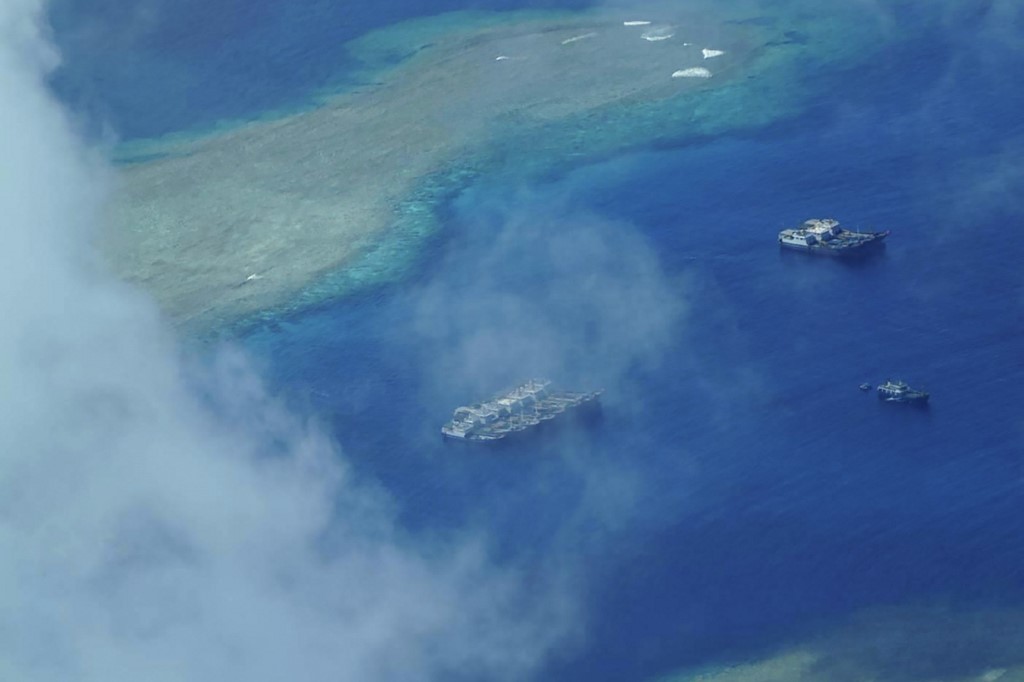Leaders of the Group of 7 have expressed strong support for President Ferdinand Marcos Jr.’s call for countries to abide by international laws to ensure peace and stability in the Indo-Pacific region.
Malacañang reported Saturday that the 2023 G7 meeting and the Quadrilateral Security Dialogue (QUAD) summit in Japan ended with resolutions favoring the Philippines being issued.
The Presidential Communications Office said Japanese Ambassador to the Philippines Koshikawa Kazuhiko confirmed in a letter the resolve of G7 leaders to confront global challenges using international legal frameworks.
The summit attendees emphasized the need to keep unrestricted passage within international waters and airspace in the Indo-Pacific region with the help of the Association of Southeast Asian Nations like the Philippines.
China’s “aggressive actions” in the South China Sea, including by its Navy and Coast Guard ships directed at their Philippine counterparts, had of late raised international concern.
The Philippines had expressed readiness to conduct joint patrols with the United States in the West Philippine Sea, a part of the South China Sea.
Kazuhiko revealed that G7 leaders cited the absence of any legal foundation for China’s expansive territorial assertions in the South China Sea as they condemned its military build-up in that region.
Aside from the US, the G7 is composed of Canada, France, Germany, Italy, Japan, and the United Kingdom, with the European Union serving as a “non-enumerated member.”
Earlier this month, Marcos Jr. has called on all South China Sea claimants to abide by the United Nations Convention on the Law of the Sea, or UNCLOS, to prevent the area from becoming a flashpoint of armed conflict.
He said the Philippines will remain firm in upholding and protecting its entitlements under UNCLOS in the West Philippine Sea, including in areas where China had encroached.
This week, the G7 backed Marcos’ position, according to the Japanese envoy.
“Significantly, the leaders reiterated the legally binding Arbitral Tribunal award (UNCLOS) rendered on 12 July 2016 as a significant milestone and a basis for the peaceful (resolution) of disputes between the parties,” Kazuhiko said.
“Underlining the universal character of the UNCLOS and its pivotal role in setting out the legal framework in all activities in the oceans and seas,” he wrote, adding G7 leaders acknowledged the significance of maintaining peace and stability in the area encompassing Taiwan Strait.
Against coercive measures, the G7 reached a consensus to bolster “economic resilience,” seemingly a veiled reference to economic sanctions the West had resorted to against expansionist moves like those by Russia in Ukraine.
“The decisive actions in the summits concretize steps towards upholding an international order based on the rule of law and strengthening outreach to the global south,” Kazuhiko said.
The G7 convenes yearly on matters like global security, energy, and economic governance.
Parallel with the G7 meeting, the QUAD summit involved the US, Australia, India, and Japan on security matters.
Marcos, in his speech before the 77th session of the United Nations General Assembly last year, said that “differences should be resolved through peaceful means and through reason and through right.”
He cited the UNCLOS and the Manila Declaration on the Peaceful Settlement of International Disputes as providing “useful guidance for our time.”
Likewise, at the 42nd ASEAN Summit Retreat Session in Labuan Bajo, Indonesia on 12 May 2023, Marcos described the UNCLOS as the “constitution of the seas.”
He said, “We must ensure that the South China Sea does not become a nexus for armed conflict.”
The Philippines had filed numerous diplomatic protests against China’s actions in the West Philippine Sea.
